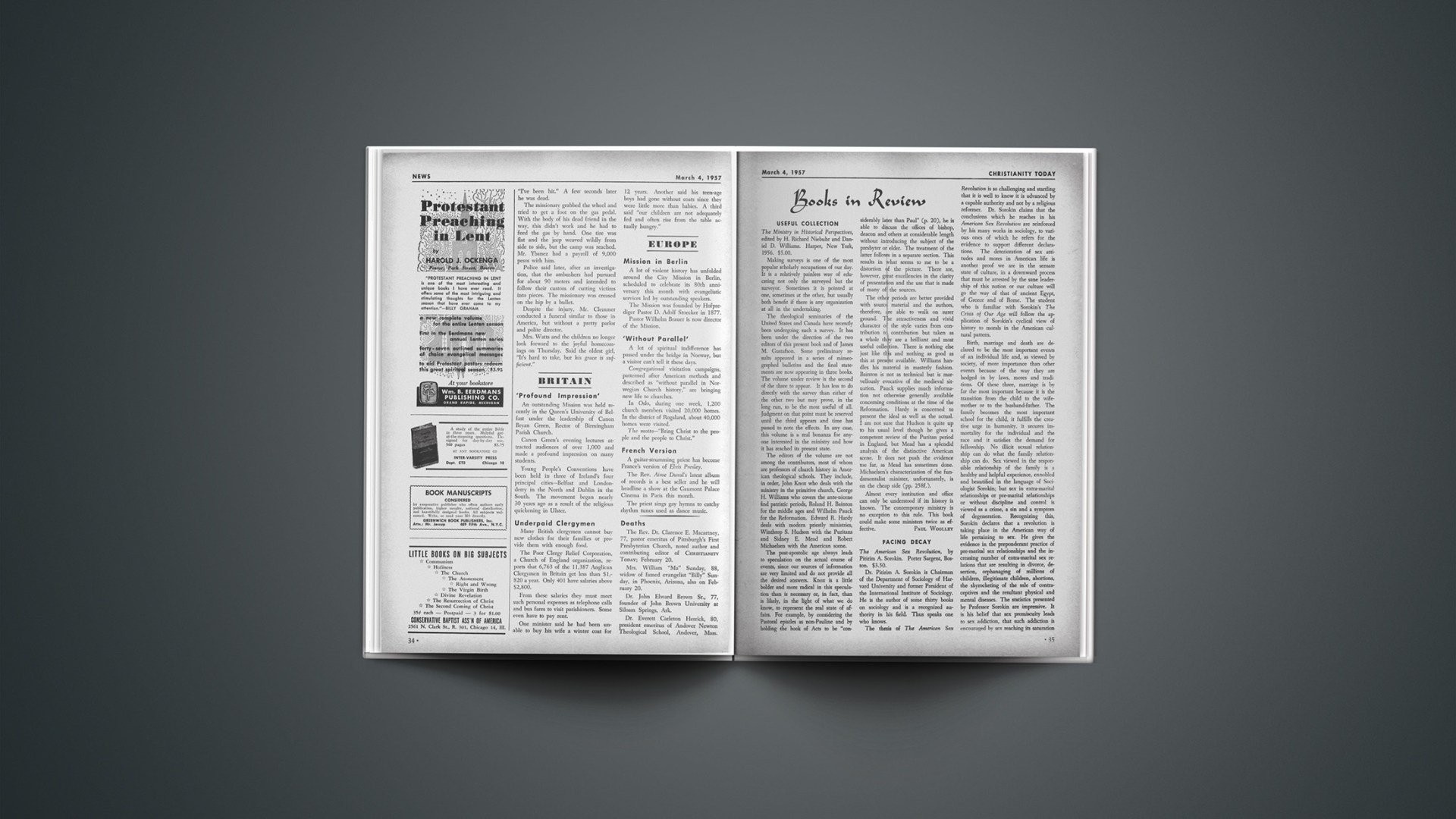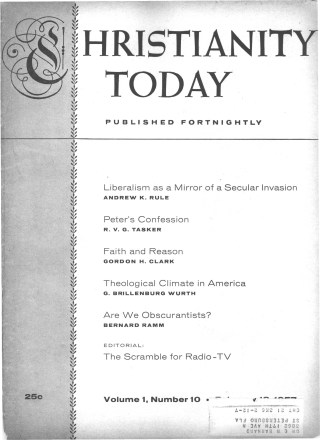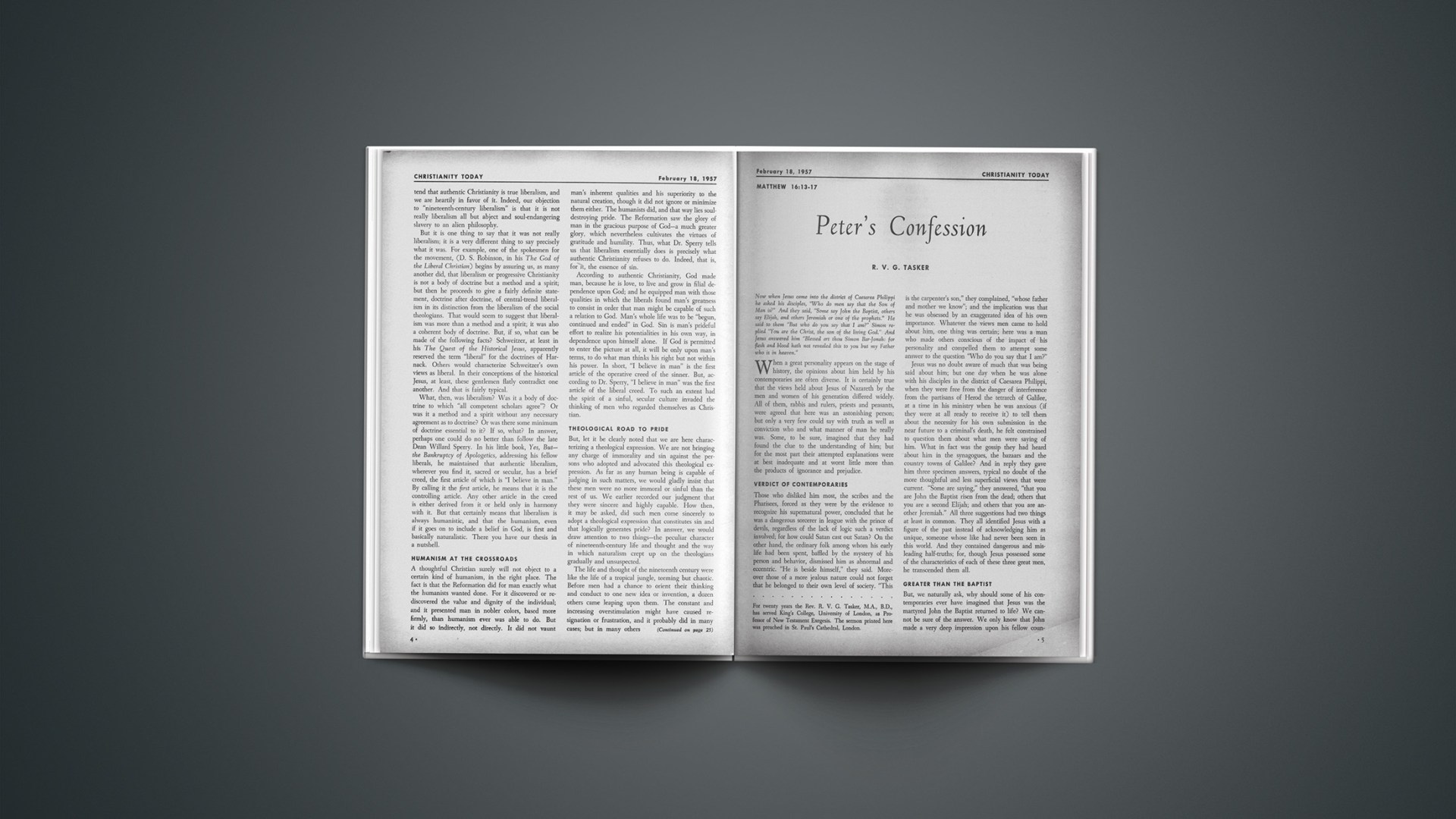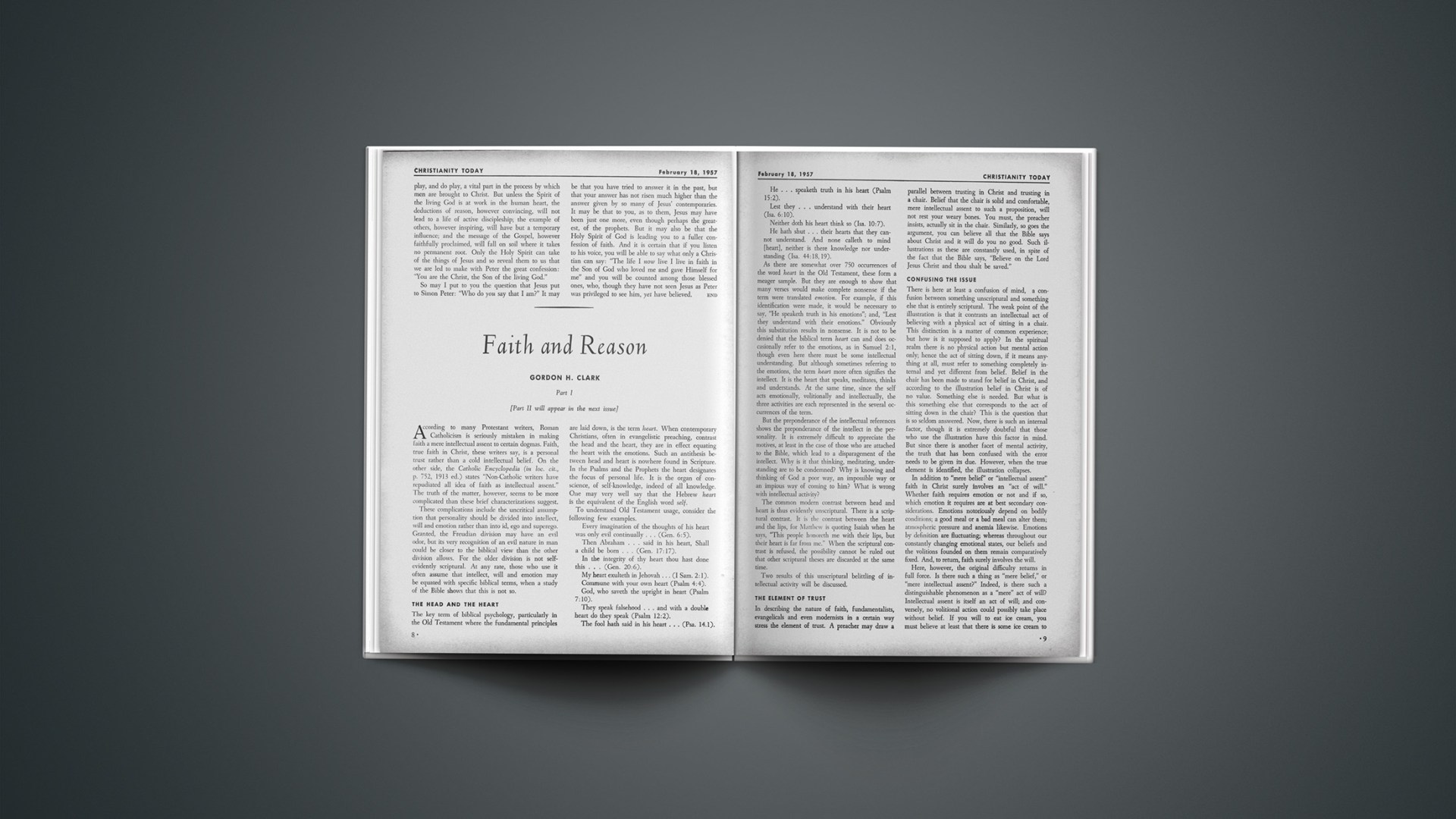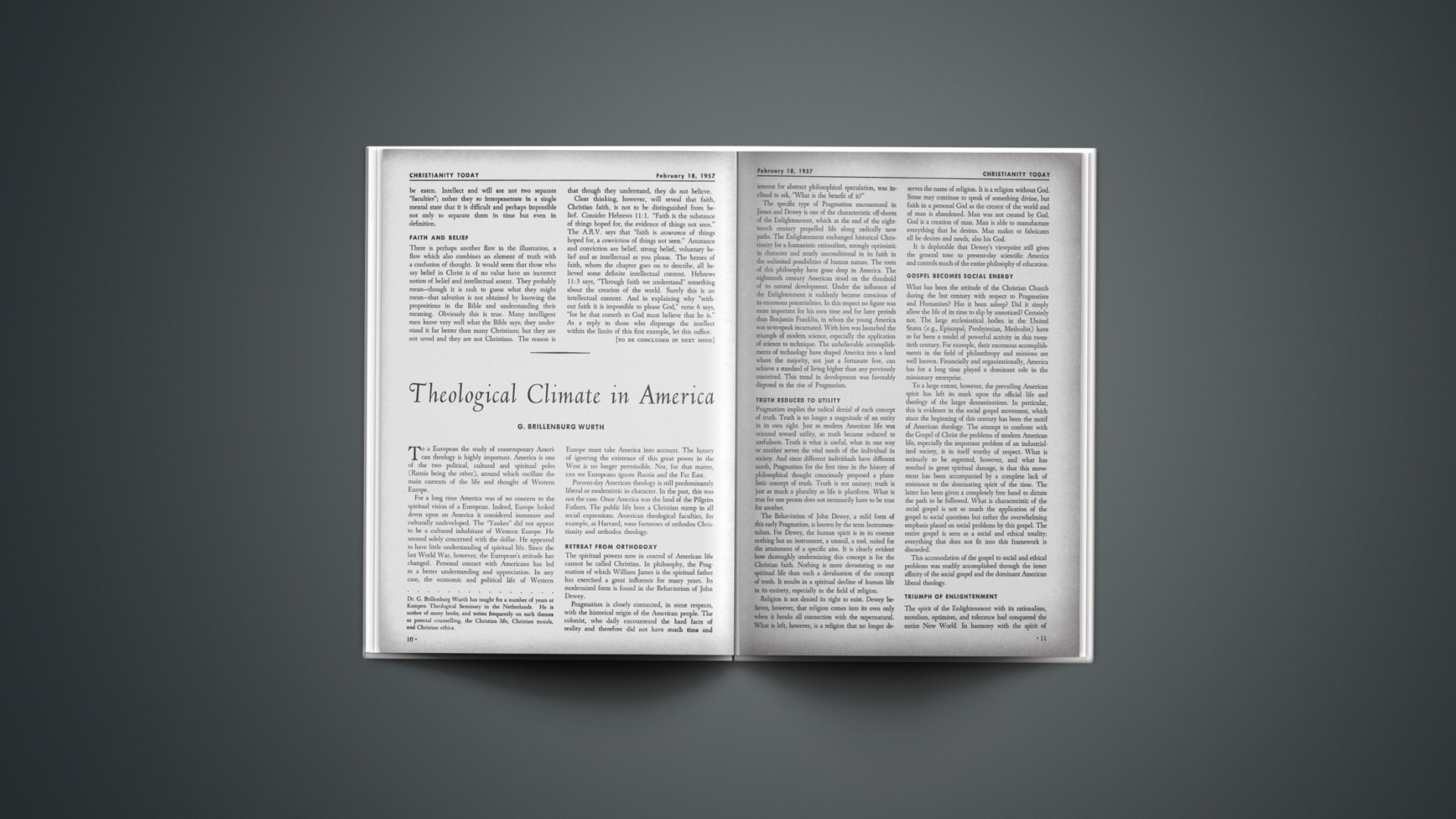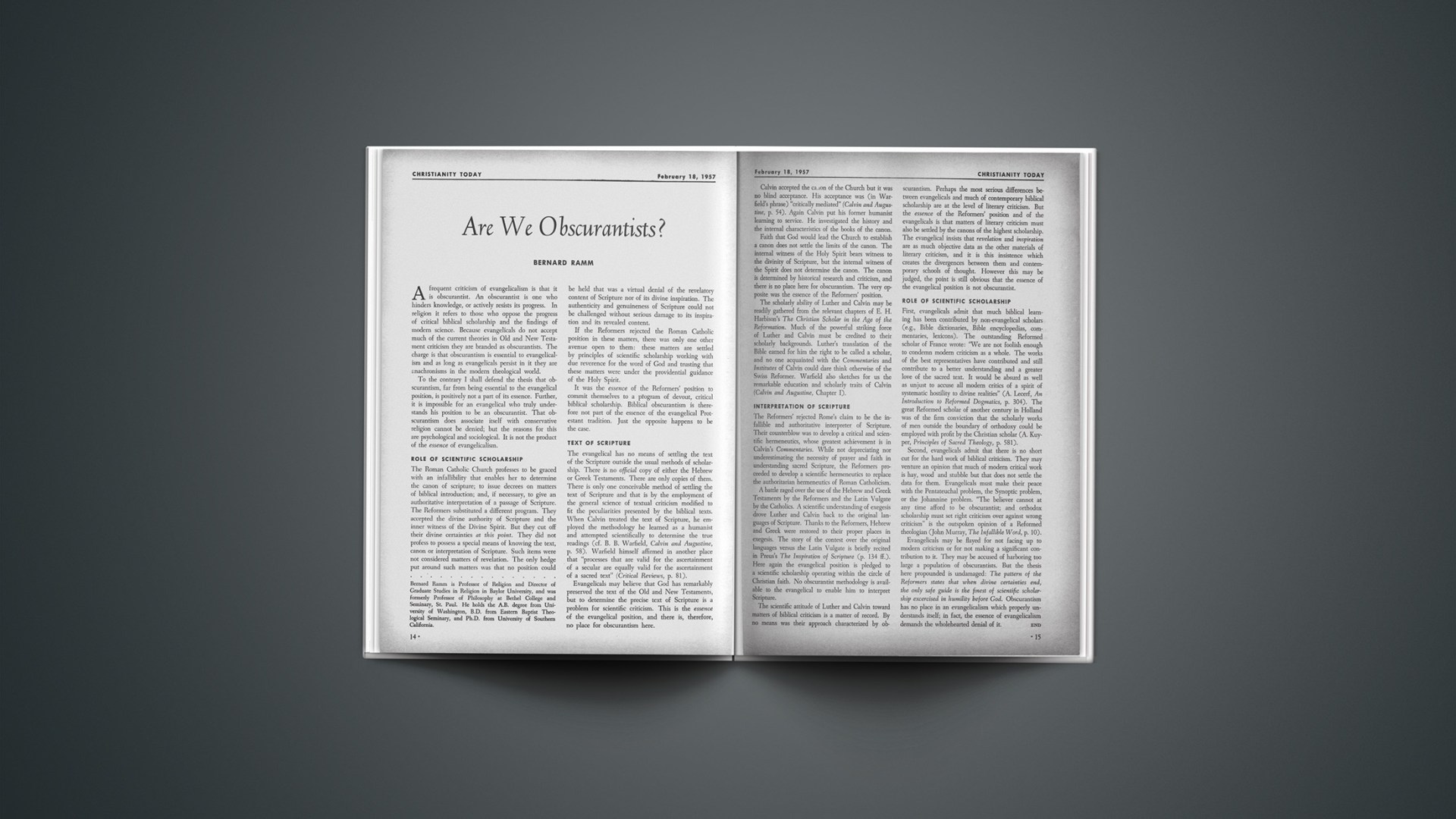Mission In Berlin
A lot of violent history has unfolded around the City Mission in Berlin, scheduled to celebrate its 80th anniversary this month with evangelistic services led by outstanding speakers.
The Mission was founded by Hofprediger Pastor D. Adolf Stoecker in 1877.
Pastor Wilhelm Brauer is now director of the Mission.
‘Without Parallel’
A lot of spiritual indifference has passed under the bridge in Norway, but a visitor can’t tell it these days.
Congregational visitation campaigns, patterned after American methods and described as “without parallel in Norwegian Church history,” are bringing new life to churches.
In Oslo, during one week, 1,200 church members visited 20,000 homes. In the district of Rogaland, about 40,000 homes were visited.
The motto—“Bring Christ to the people and the people to Christ.”
French Version
A guitar-strumming priest has become France’s version of Elvis Presley.
The Rev. Aime Duval’s latest album of records is a best seller and he will headline a show at the Gaumont Palace Cinema in Paris this month.
The priest sings gay hymns to catchy rhythm tunes used as dance music.
Deaths
The Rev. Dr. Clarence E. Macartney, 77, pastor emeritus of Pittsburgh’s First Presbyterian Church, noted author and contributing editor of CHRISTIANITY TODAY; February 20.
Mrs. William “Ma” Sunday, 88, widow of famed evangelist “Billy” Sunday, in Phoenix, Arizona, also on February 20.
Dr. John Elward Brown Sr., 77, founder of John Brown University at Siloam Springs, Ark.
Dr. Everett Carleton Herrick, 80, president emeritus of Andover Newton Theological School, Andover, Mass.

